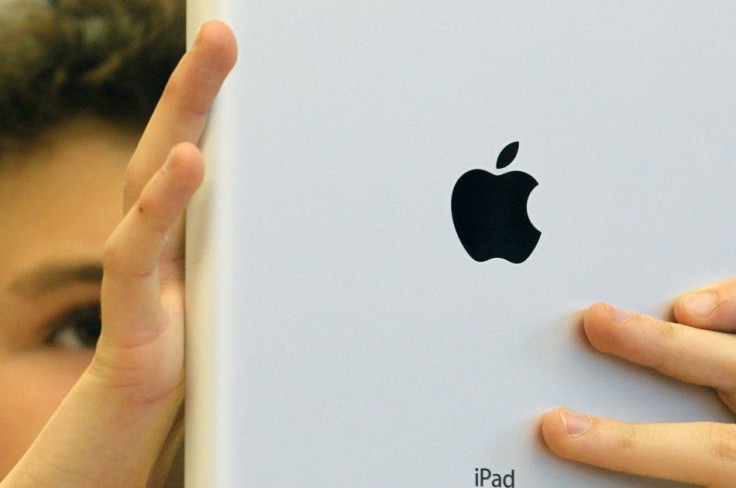Android, Windows 8 vs. iPad: Will Apple Lose Tablet Marketshare?

Apple's dominance of the tablet space with its iPad will end next year, according to a 90-page report filed by Nomura Equity Research's Asian technology analyst team. The group says Google's new Android operating system, due by the end of the year, and Microsoft's forthcoming new Windows version, Windows 8, will hit the sweet spot in 2012.
The Nomura Equity Research report predicts the combination of Google's new Android operating system, Ice Cream Sandwich, and Microsoft's Windows 8, will lead to shipments of more than 47 million non-Apple tablets.
The report predicts Apple's tablet market share will drop in 2012 to 55 percent from 65 percent it has this year. Apple became the tablet leader based upon success of the iPad and iPad 2.
The report says, however, Apple will remain the leading tablet provider into 2013, despite the increased competition from Google's new Android operating system and Windows 8.
The report forecasts Apple will still hold 53 percent of tablet market share worldwide in 2013, against 28 percent market share predicted for Google Android tablets, and 17 percent predicted for Microsoft Windows-based tablets.
While Apple will likely remain a leading player in the tablet market on strong software integration, cloud service and cost advantages, we expect the competitive landscape to change in 2012, the report's authors wrote.
Microsoft will rapidly expand its number of retail stores in the U.S initially, and then abroad, to better position the company for selling its retail products, like Windows-based tablets.
Microsoft's chief operating officer, Kevin Turner, told an audience of 15,000 at Microsoft's 2011 Worldwide Partner Conference in Los Angeles Wednesday that the company has learned a lot about consumers from its retail stores and that the company will embark an aggressive expansion, challenging Apple on that front.
Microsoft will also open stores outside of the United States once the initial wave of its retail store expansion is well underway. Microsoft has only 11 retail stores in the United States currently, so the expansion of 75 new stores is a big shift in strategy. The company will concentrate its new stores in the two to three year expansion in the northeastern United States, California, and Florida.
Apple has more than 320 retail stores and almost 90 abroad, and those stores have driven sales of the iPad, and other products including the iPhone and Mac personal computers.
At one time, Microsoft actually had more retail stores than Apple but the company essentially walked away from that strategy 10 years ago.
But Apple has grown fast, due mostly to its successful relationship with customers, and its retail stores have been an important part of that strategy. Many Apple (NASDAQ: AAPL) stores are busy throughout the day, and some have experienced lines out the door when new products like the iPad have been launched.
Microsoft (NASDAQ: MSFT) got back into the retail store business in 2009 after walking away from the strategy in 2001. Apple's retail store success had everything to do with the company's return to the business.
But whether or not Microsoft in particular can win market share from Apple in the tablet space with new product and more retail stores remains to be seen. The iPad ties in almost seamlessly with Apple's other blockbuster products, including the iPhone, the world's best-selling smartphone, and its Mac personal computers.
Information revealed Wednesday showed Apple has passed other personal computer vendors in the U.S. to reach third place in personal computer sales in the second quarter. Apple has passed Toshiba and Acer, after previously being in fifth place among the top U.S. personal computer sellers in the first quarter of 2001.
The company's fast growth in the personal computer space adds strength to Apple's tablet space that may not be calculated in the report because the more market share Apple gains with iPhone's and Mac personal computers, the more strength it gains in the tablet space, since customers like components that more readily fit together.
Apple's stock price is even back on the move, and a JPMorgan analyst says investor's should get ready for the return of the wow factor.
JPMorgan's Mark Moskowittz says investors should get ready for Apple's 'wow factor' to come back to the stock. Moskowitz raised his third quarter earnings per share estimates on Apple to $6.58, from a previous estimate of $5.55 per share. He's forecasting a revenue increase of $27.42 billion, up from a previous estimate of $24.80.
Moskowitz writes in a research note that sales of Apple's popular iPhone are soaring. He has raised his estimate of Apple iPhone sales to 19.6 million units for the third quarter, up from his prior estimate of 17.6 million units.
Our research inputs indicate that iPhone shipments exhibited no signs of a slowdown, Moskowitz writes. Plus, we expect the momentum to continue, driven by the looming iPhone 4-plus refresh.
© Copyright IBTimes 2024. All rights reserved.





















